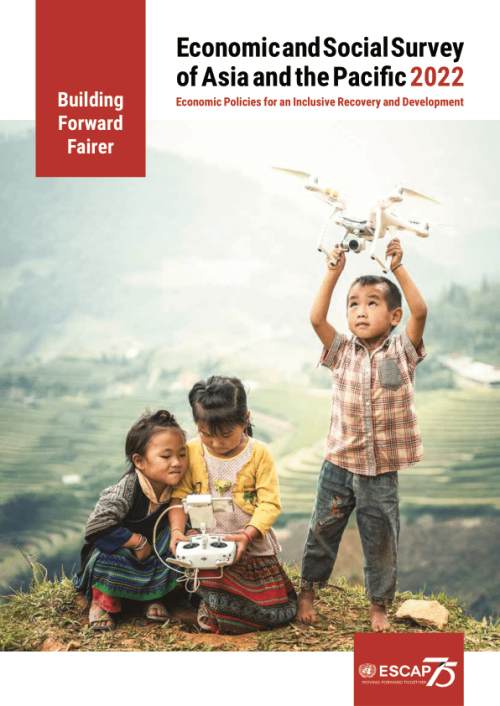
https://www.unescap.org/news/build-forward-fairer-un-report-calls-region...
In addition to the pandemic, the report shows that regional economies face several downside risks related to supply constraints, rising inflationary pressures, prospects of increases in interest rates, shrinking fiscal space, and the emerging global economic fallout from the ongoing Russian-Ukrainian conflict. Economic growth in developing countries in Asia and the Pacific is projected to moderate to 4.5 per cent in 2022 and 5 per cent in 2023, compared with an estimated growth rate of 7.1 per cent in 2021. The cumulative output loss due to COVID-19 for the region’s developing economies between 2020 and 2022 is estimated to be nearly $2 trillion.
With dwindling fiscal space in many developing countries in the region, the Survey cautions against cuts in fiscal expenditures on health care, education and social protection in order to protect the development gains of past decades and prevent further deepening of inequalities in the region.
The pandemic has denied more than 820 million informal workers and over 70 million children in low-income households in the region adequate access to incomes and schooling. This outcome will have scarring effects on the future earning potential of these persons and overall productivity growth. An additional 85 million people in Asia and the Pacific had already been pushed back into extreme poverty in 2021.
“As developing countries in the region move ahead with learning to live with COVID-19, balancing the protection of public health and livelihoods, it is time to lay the foundations for a fairer future of equal opportunities and inclusive outcomes,” said Armida Salsiah Alisjahbana, United Nations Under-Secretary-General and Executive Secretary of ESCAP.
ESCAP recommends a three-pronged policy agenda aimed at shaping an inclusive economy in Asia and the Pacific. First, instead of reductions, developing countries in the region must tilt public spending towards basic universal health coverage, push further towards universal primary and secondary education, and expand social protection coverage. “Smart” fiscal policies can improve the overall efficiency and impact of public spending and revenue collection. Concurrently, new sources of revenue should be explored, such as taxing the digital economy, along with shifting the tax burden towards those better off.
Second, the 2022 Survey argues that central banks in the region can and should tilt their traditional monetary policy conduct towards promoting inclusive development. While remaining focused on keeping inflation low and stable, central banks can invest part of official reserves in social bonds, explore how a central bank digital currency can enhance financial access, and encourage more innovative financial instruments for social purposes.
Third, Governments can also proactively guide, shape and manage the structural economic transformation process, which is increasingly driven by the digital-robotics-AI revolution, for more inclusive outcomes. This includes supporting the development of labour-intensive technologies, inclusive access to good-quality education, reskilling, strengthening labour negotiation capacities and social protection floors.
First produced in 1947, the Economic and Social Survey of Asia and the Pacific is the UN’s oldest and most comprehensive annual socioeconomic study informing policymaking in the region. This year’s Survey analysed the importance of effective government actions and the role of fiscal, monetary and structural policies in enhancing inclusiveness, keeping in view the considerable adverse impacts of COVID-19 on poverty and inequality.
Access the full report: https://bit.ly/flagshipsurvey2022
For multimedia materials related to the Survey: https://trello.com/c/Fzc7w8r1










Add new comment